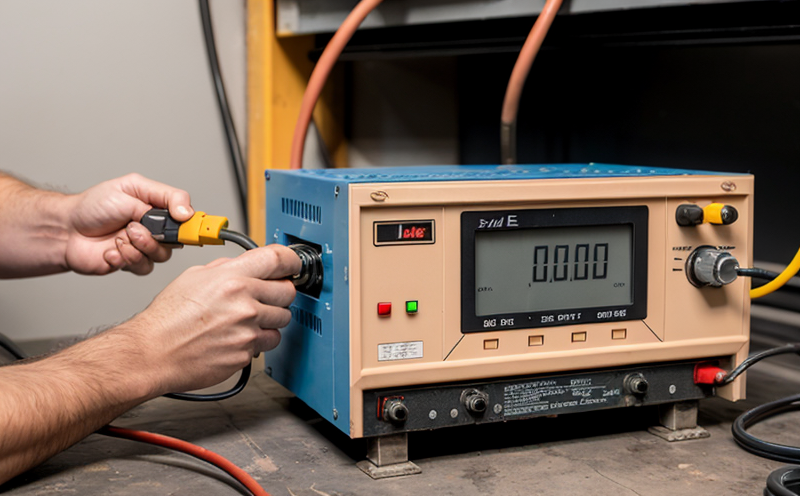JEDDEC JESD22-B117 Die Solder Joint Reliability Testing
The JEDEC JESD22-B117 standard is a critical component in ensuring the reliability of semiconductor devices, particularly focusing on die-level solder joint integrity. This testing method assesses the mechanical and thermal stresses that can affect the solder joints of integrated circuits (ICs) during manufacturing processes and after deployment in end products.
The JESD22-B117 test is designed to simulate real-world conditions where a component may experience significant temperature cycling, mechanical stress, or both. This testing helps identify potential weaknesses early on, ensuring that only robust components are used in final assemblies. The test involves placing the die under controlled environmental conditions and applying thermal cycles, which can range from -55°C to 125°C, depending on the specific requirements of the device.
The process begins with thorough preparation of the die sample, which includes cleaning the surface to remove any contaminants that could interfere with the test results. The specimen is then mounted onto a carrier, ensuring proper alignment and stability for thermal cycling. The test chamber simulates environmental stresses by gradually increasing and decreasing temperatures over specified durations.
The instrumentation used in this testing process typically consists of high-precision temperature controllers and monitoring systems capable of accurately tracking the temperature profile throughout the cycle. The test results are analyzed based on several parameters, including the integrity of the solder joint after each thermal cycle, any visual or microscopic signs of damage, and electrical continuity.
The acceptance criteria for this testing are stringent, focusing on maintaining the structural integrity and electrical performance of the die under specified stress conditions. Compliance with these standards ensures that semiconductor devices meet the reliability requirements set by industry benchmarks.
| Thermal Cycle Conditions | Number of Cycles | Test Duration | Acceptance Criteria |
|---|---|---|---|
| -55°C to 125°C | 100 cycles | 48 hours per cycle | Solder joint integrity, electrical continuity, and structural stability. |
This testing method is essential for ensuring the quality and reliability of semiconductor devices. By identifying potential issues early in the manufacturing process, it helps manufacturers avoid costly mistakes and ensures that products meet stringent industry standards.
The importance of this test cannot be overstated in today's highly competitive electronics market. It plays a crucial role in maintaining the integrity of the supply chain by ensuring that only reliable components are used in final assemblies.
Industry Applications
- Automotive electronics, where reliability is paramount for safety-critical systems.
- Aerospace and defense, due to the harsh environmental conditions these devices must endure.
- Consumer electronics, particularly in portable devices that experience frequent temperature fluctuations.
- Medical devices, where consistent performance and reliability are critical for patient care.
The JESD22-B117 test is widely used across various industries to ensure the longevity of semiconductor devices. Its applications span from automotive electronics, where reliability is crucial for safety-critical systems, to consumer electronics, which experience frequent temperature fluctuations due to their portable nature.
Customer Impact and Satisfaction
- Enhanced product quality leading to higher customer satisfaction.
- Reduction in warranty claims and returns for defective products.
- Increased market credibility and brand reputation through compliance with industry standards.
- Better alignment of product development processes with international regulatory requirements.
By ensuring that only robust components pass the JESD22-B117 test, manufacturers can significantly enhance their product quality. This leads to higher customer satisfaction as products are more reliable and less prone to failure. Additionally, reduced warranty claims and returns for defective products translate into cost savings and improved brand reputation.
Competitive Advantage and Market Impact
- Enhanced product reliability leading to increased market share.
- Achievement of regulatory compliance with international standards, opening up new markets.
- Premium positioning in the market as a leader in quality assurance.
- Better alignment with industry trends and technological advancements.
The JESD22-B117 test provides a significant competitive advantage by ensuring that products meet stringent reliability standards. This can lead to increased market share, especially in highly regulated industries. Compliance with international standards also opens up new markets and positions the company as a leader in quality assurance.





